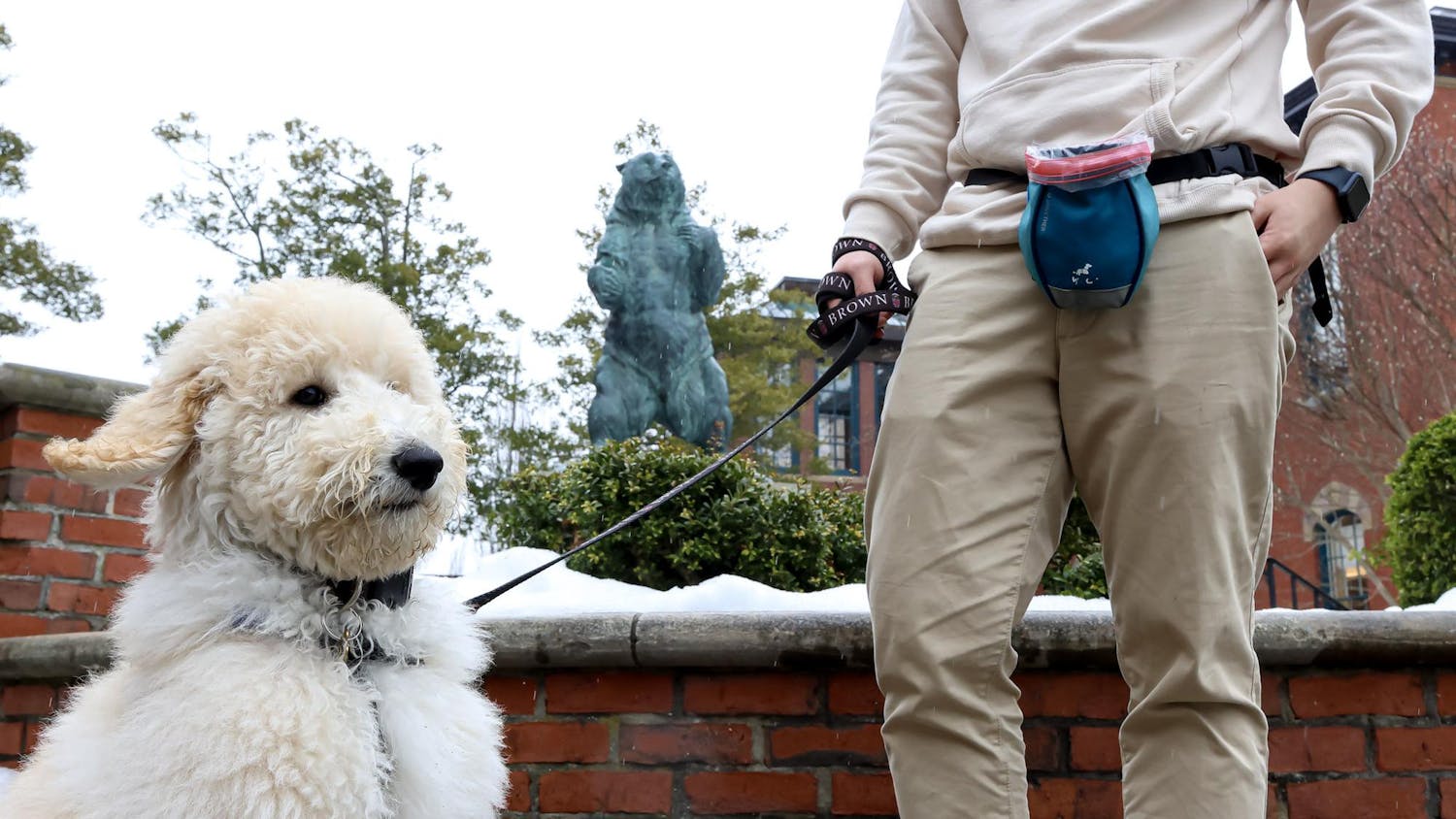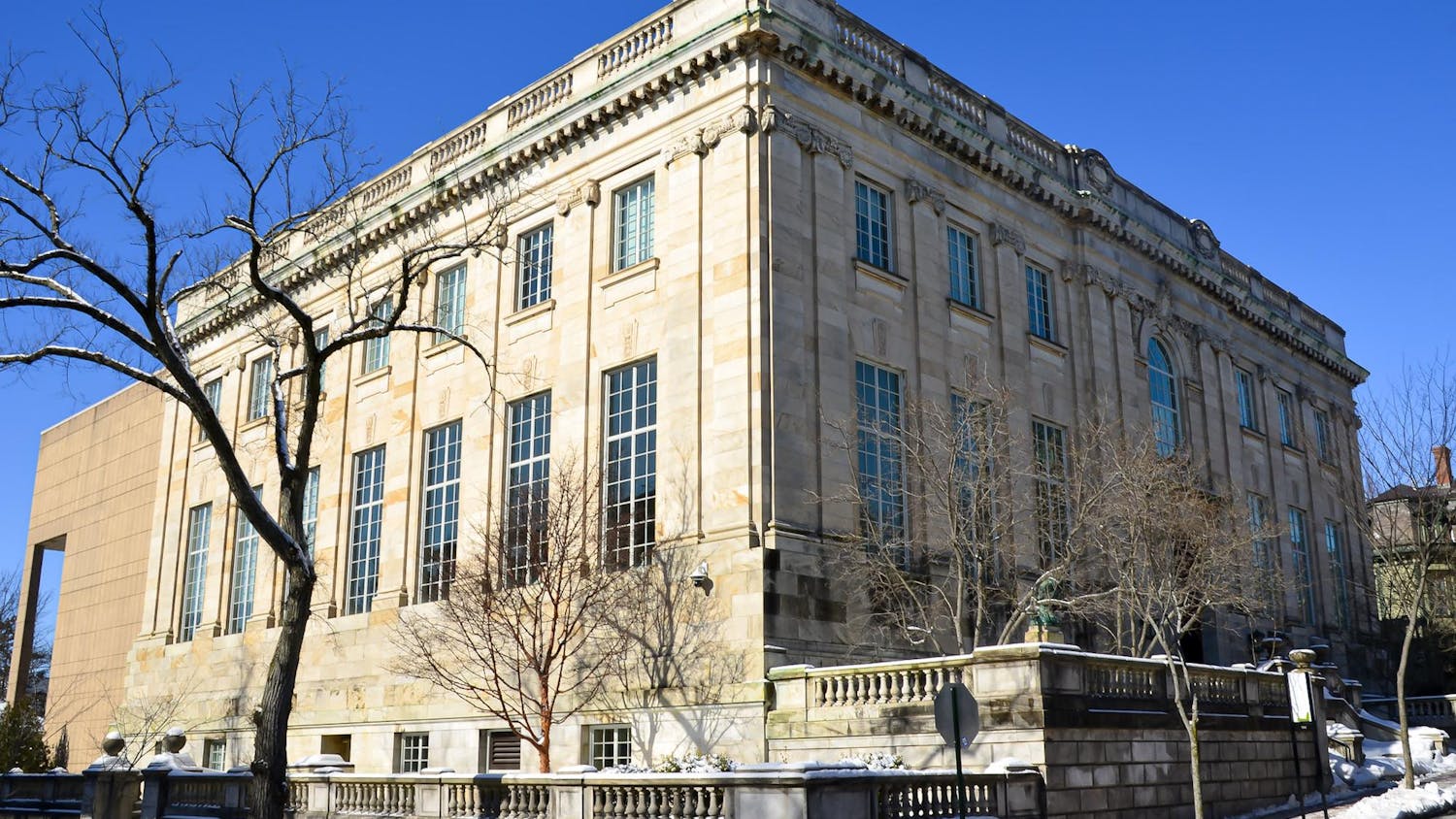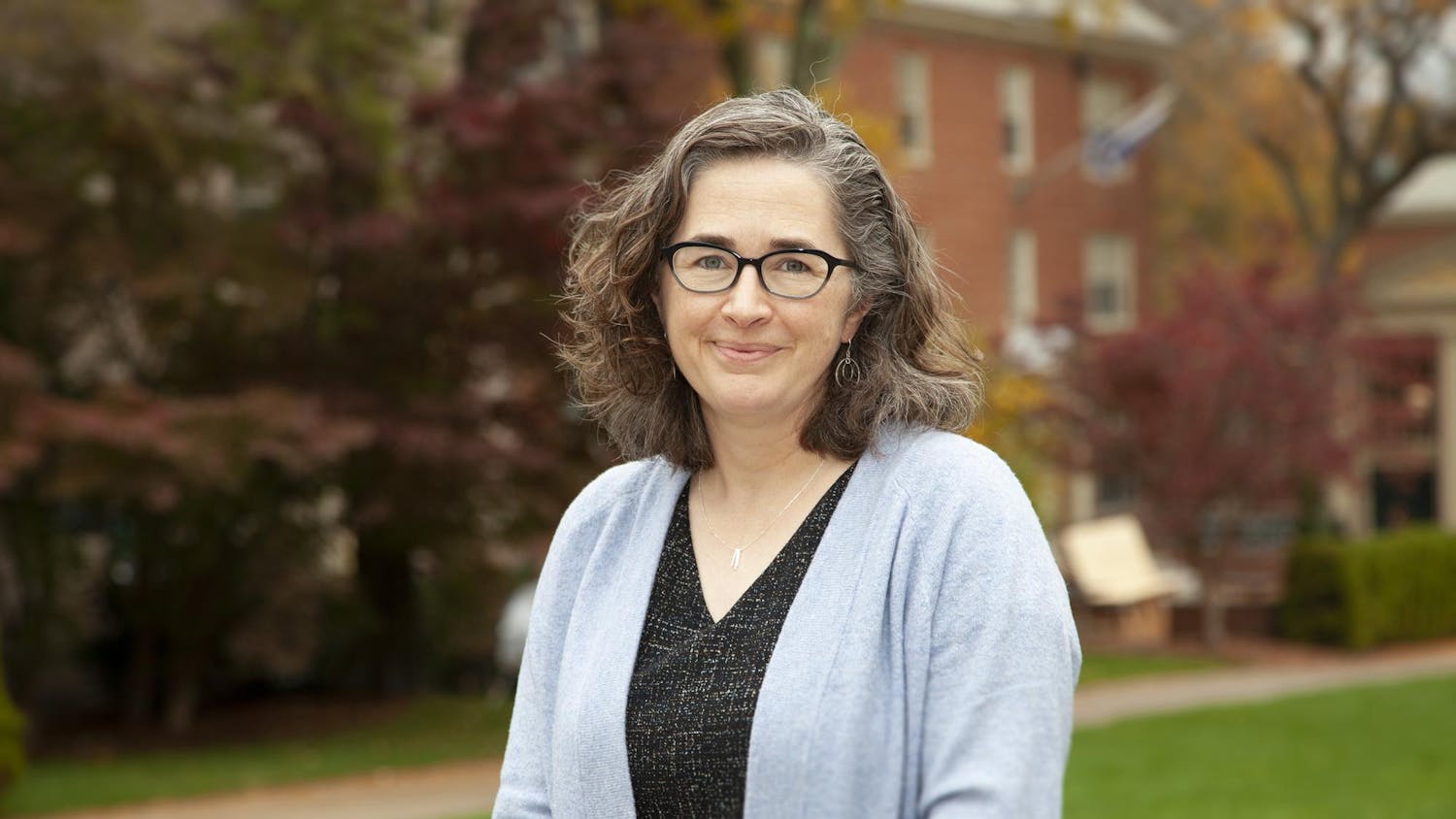Local action is the key ingredient to affect urban change, Newark, N.J., Mayor Cory Booker told a Salomon 101 audience Thursday that included Providence's own mayor, David Cicilline '83.
Booker, whose reforms since his election in 2006 have improved conditions in one of the country's most violent cities, delivered the annual Noah Krieger '93 Memorial Lecture, sponsored by the Taubman Center for Public Policy.
"I think every person in this room has the ability to make a profound impact on the world," Booker said.
Quoting figures from Shakespeare to Chris Rock, Booker's 45-minute address described his experiences trying to revitalize the crime-ridden city and what he learned about the power of individuals to improve their communities.
Improving the conditions in American cities will ultimately benefit the nation as a whole, Booker said, imploring all audience members not to be deterred by obstacles and setbacks. Americans too often let an inability to do everything undermine their willingness to do anything, Booker said.
Booker faced a number of hurdles when he first sought to effect change in Newark, he said. He moved to the city while enrolled at Yale Law School in hopes of becoming a community organizer, he said.
He faced pessimism when he first entered politics. The major concern most Newark residents had was the high crime rate, and people advised him not to measure his success as a city councilman or mayor in terms of the crime rate, he said.
But Booker sought places where improvements could be made and strove to open up communication within the community. He investigated the police department and found it operated "like an episode of ‘Barney Miller,' " with outdated technology.
He also noticed that more than 70 percent of police officers worked day shifts even though most crime happened at night. He worked to remind the night-shift officers of their importance. Booker even insisted upon accompanying officers on their shifts, recalling one such trip that ended with the suspects apprehended and the mayor crawling on the ground, searching for the drugs they had scattered.
Booker said fixing problems required taking action in ways that had never been tried before and viewed such unorthodox measures as successful. Recent statistics indicate that shootings have declined 42 percent on his watch, and the murder rate has fallen by two-thirds, according to Booker.
He acknowledged that he experienced "dark days" in his efforts to improve Newark, particularly as a councilman. Fed up with the apparent stagnation, Booker pitched a tent in a public area and vowed to sleep there and fast until matters started to improve.
Even this extreme step, though, proved to have a positive effect — the next day, correctional officers joined him in his endeavor, and ministers joined him later still. Dozens of citizens came to investigate the situation, and news quickly spread as more people became curious about what he was doing. Together they all fasted and prayed, which Booker said was the moment in his life during which he felt the strongest, despite being racked with hunger.
As people held hands and prayed in multiple languages, Booker said, he saw the group was united for a common hope. "I felt like I was hearing the voices of my ancestors," Booker said.
"Whenever I hit a dead end, or a cliff, I find people who help me move forward," he said later.
Booker answered audience members' questions after he finished his speech. Asked if he was looking to advance further in politics, Booker stressed that he viewed aiding the Newark community as his primary objective at the moment.
"Life is about purpose, not position," he said.
The same questioner asked for his thoughts on former President Jimmy Carter's recent statement that much of the criticism currently being leveled against President Obama was racially motivated.
Booker said he respected Carter, but did not view the debate over the role of racism in assessments of Obama's presidency as productive in its current form. Though racism is still a societal problem, he said, it is efforts like educating Newark's children — 85 percent of whom are black or Latino according to Booker — that best help to combat prejudice.
In response to another question, Booker said his long-term plans for education in Newark include expanding charter schools and urban scholarships. Asked about the role of arts in urban revitalization, Booker said he approved of establishing more cultural institutions — such as art galleries — to create a more vibrant atmosphere in local neighborhoods.
For the bulk of his appearance, however, Booker stressed grassroots participation as the vital component of change.
Earlier, during his lecture, Booker urged the room to consider wisdom he said his mother imparted to him: that the makers of history were ordinary people who took action and accomplished extraordinary feats.
"Democracy is not a spectator sport," he said. "It's a full-contact, participatory endeavor."




